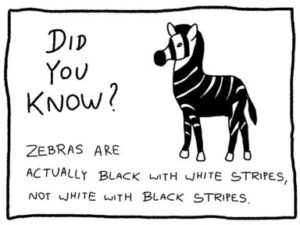Moving from Factual Exploration to Resolution

{4 minutes to read} My last blog addressed the relationship between “fake news” and mediation. I posited that resolving a dispute through mediation typically does not result from the parties agreeing on the “truth” or the facts underlying the dispute. Assuming that’s the case, what are the implications?
Here’s one: In general, I find that divorce mediations take longer than most other kinds of mediations. That’s not because divorcing couples take longer to agree on or figure out the relevant facts than, say, commercial litigants. More often than not, divorcing couples can eventually agree on their financial circumstances.
They know what money they have and where it came from. They know how many kids they have, their names, ages, etc. They may agree less on where money has gone and what their actual expenses are, and this can require some factual analysis that the mediator and a financial advisor can assist in. Even though one spouse may be more financially savvy than the other, in the end most couples can agree on what their financial situation is — what’s owned, and by whom, what the value is of checking/savings/retirement accounts, how much is owed, etc.
While it may take time to unravel these facts, final agreement on the divorce usually happens because the parties have navigated the emotional labyrinth of creating a new life, which takes time and energy. They need to work through emotional bitterness, sadness, and distrust to get there. A divorce mediation is concluded not because the couple has finally agreed on the facts, but because they have worked out the basics of their new life — they’ve split the money, figured out how they will handle the kids, and who will live where.
Litigating the case in court would take 2-4 years, easily cost tens of thousands of dollars, or more, and in the end, there wouldn’t be many facts for a court to determine. The impediment to resolution is more emotional distress than factual disagreement. Divorcing couples do not so much reach an agreement on disputed facts as they agree on what they can do moving forward. There is a factual underpinning to that, but the facts rarely change from the beginning of the process to the final agreement.
I have never had an employment mediation where the parties agreed on the disputed facts, but the vast majority of them get resolved at mediation. It’s the same with commercial disputes. To the extent that facts need to be uncovered or furnished to the other side, mediation provides an inexpensive and relatively smooth process for doing so.
If litigants can often settle disputes without ever fully agreeing on the facts, what are the implications for resolving disputes in general? Disputes between relatives rarely (never?) get resolved because the warring factions finally agree on the “facts” of what created the mess in the first place, though they often have to discuss events and respective versions of the facts. Commercial disputes often settle because the parties make a business decision as to what is most cost effective or what works best going forward.
There is no “one size fits all.” What’s always critical is giving parties the opportunity to talk about facts so they can then resolve a dispute without resolving the facts. I don’t want to imply that facts are never important. Denying global warming while Australia is burning to the ground during record high temperatures won’t lead to viable solutions. Antibiotics, not leeches, cure infections and if one denies the existence of bacteria, the bacteria will prevail. However, while resolving disputes can require factual exploration, mediation gives parties the opportunity to vent and negotiate, which typically moves the process away from a factual exploration to the means of resolution.
 |
Gary Shaffer Shaffer MediationGary@ShafferMediation.com |
